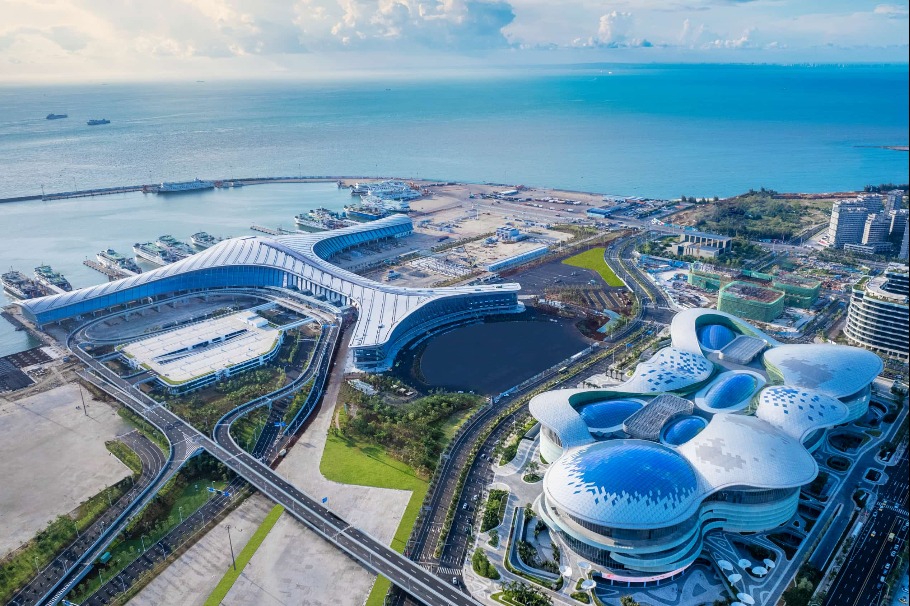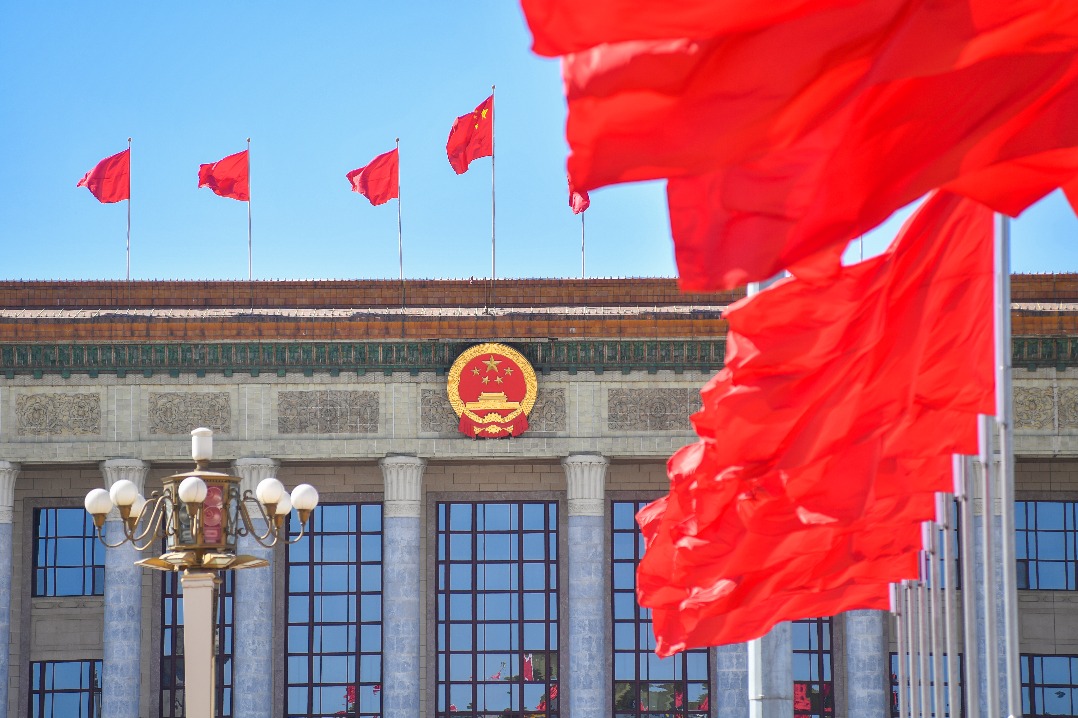Maritime strategy for big blue horizons

Better safeguard rising overseas interests

China's efforts to become a strong maritime country, as mapped out by the report of the 19th National Congress of the CPC, are an important part of the country's strategy to achieve national rejuvenation. However, during this process, China will have great opportunities as well as face huge challenges. Therefore, China has to be prepared to overcome crises, by strengthening top-level design and comprehensive strategic arrangements to better protect its maritime rights and interests, and advance international cooperation.
Some of China's current maritime rights and interests face huge challenges. Closer to its coasts, some of China's sovereign islands and reefs have been occupied, its coastal resources exploited and maritime information stolen by other countries. In the open sea, some non-traditional maritime threats are on the rise, such as piracy and terrorist activities, which pose a serious threat to the safety of China's marine research and transport vessels.
The maritime containment strategies adopted by some Western countries against China in the past, too, pose a potential threat to the safety of China's waterways.
China also has to better safeguard its expanding overseas rights and interests. Especially since the launch of the Belt and Road Initiative, China's overseas interests have been growing rapidly, not just in the economic field, but also in financial, technological, political and diplomatic fields. The Belt and Road Initiative involves 65 countries across Asia and Europe, and it is expected to cover more in the future.
The ever-increasing common interests with the countries along the Belt and Road and other stakeholders will not only enhance China's comprehensive national strength but also create more opportunities for these countries and greatly boost their people's well-being. The economic cooperation measures jointly advanced by China and the relevant countries based on the principles of "consultation, co-building and sharing" may also bring about changes to the established regional economic, even political, landscape. And this could challenge some traditional powers' existing spheres of influence and thus make them uncomfortable, even anxious.
China, at present, faces three major challenges when it comes to maintaining its overseas rights and interests. First, China could encounter a severe challenge from the possible misunderstandings, obstructions and conflicts in the countries involved in the Belt and Road Initiative given the different political systems, religions, cultures and laws and regulations, and/or lingering turbulence in those countries.
Second, China could face obstructions from the West, as reflected by the newly launched "Indo-Pacific" strategy by the United States, the hyping up of the "China threat" theory once again by some Western countries, and the restrictions on Chinese investment imposed by the European Union and some other Western economies. They pose potential risks to China in the process of its expanding overseas interests.
And third, China faces the challenge of building its capability and means to such an extent that it can maintain its overseas interests, which now extend across the world.
Looking into the future, China should have clearer goals and means to maintain its overseas interests, such as taking more concrete measures to implement its "consultation, co-building and sharing" proposals. It also should accelerate the process of developing into a strong maritime country, strengthen its planning and execution on maritime issues, and set up a more agile and responsive maritime interest coordinating mechanism.
At the same time, it should accelerate the building and application of its maritime soft power, and set up a new maritime security mechanism, at both the government and non-government levels and on bilateral as well as multilateral basis, to help reshape the maritime security order.


































